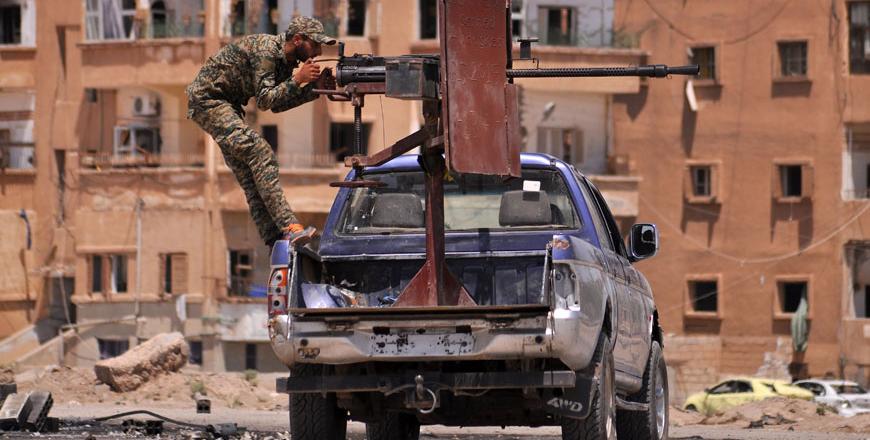You are here
Turkey vows ‘whatever necessary’ in fight against militants
By AFP - Aug 03,2015 - Last updated at Aug 03,2015

Turkey's Prime Minister Ahmet Davutoglu (right) walks with Chief-of-Staff Gen. Necdet Ozel (left) and other top military commanders, members of the country's high military council, following a visit at the mausoleum of modern Turkey's founder Mustafa Kemal Ataturk, in Ankara, Turkey, on Monday. Turkey’s high military council holds its annual meeting to decide on promotions, retirements and dismissals within the military. This year, the council is expected to appoint Land Forces Commander Gen. Hulusi Akar as chief of general staff to replace Ozel who retires later this month (AP photo)
ISTANBUL — President Recep Tayyip Erdogan on Monday vowed to do "whatever necessary" in Turkey's controversial fight against Kurdish militants, with no end in sight to a two-week cycle of violence.
Ankara is waging a two-pronged cross-border "anti-terror" offensive against Daesh militants in Syria and Kurdistan Workers Party (PKK) rebels in northern Iraq, after a wave of attacks in the country.
But so far, the air strikes against the PKK targets in northern Iraq have far outweighed those against Daesh, raising concerns about the extent of possible civilian casualties.
Erdogan told reporters returning with him on a trip to Asia that the Kurdish authorities in northern Iraq should be taking action against the PKK bases there.
"If they cannot, Turkey will do whatever necessary to defend itself," he was quoted as telling reporters on his presidential jet.
But with the PKK staging daily attacks on security forces in reprisal for Turkish bombing raids, Erdogan denied there would be any return to the 1990s when the group's separatist insurgency was at its peak.
"I don't believe that. That's impossible. Maybe those who say this want to return to the 1990s," he said, quoted by the Sabah daily and other newspapers.
Erdogan and Prime Minister Ahmet Davutoglu on Monday met top military commanders at Turkey's supreme military council, in a closed-door meeting planned to last three days.
'Common interest'
The current crisis began two weeks ago on July 20 when 32 young pro-Kurdish activists were killed in a Turkish town on the Syrian border in a suicide bombing blamed on Daesh.
The PKK, which accuses the government of collaborating with Daesh, shot dead two Turkish police in reprisal, starting a wave of violence that has shattered a 2013 ceasefire.
According to an AFP toll, 17 members of the Turkish security forces have since been killed on attacks blamed on the PKK.
On Sunday, two Turkish soldiers were killed and 31 wounded in a suicide bombing by a PKK guerrilla in the east of the country, the first time the group has used the tactic in the current conflict.
The PKK confirmed Monday the attack was carried out by one of its guerrillas with the nom-de-guerre of Andok Eris, saying it was a reprisal for a Turkish air raid that pro-Kurdish media said killed several civilians on Saturday morning.
The Turkish army has insisted the air force bombing in the Zarkel region of northern Iraq hit a "terrorist camp" and not a civilian village.
The Kurdish authorities in northern Iraq have long tolerated the presence of PKK fighters in its remote mountains.
But regional president Massud Barzani said at the weekend it was time the group took its battle with Turkey elsewhere to avoid civilian casualties.
In new violence blamed on the PKK, two military vehicles were damaged in the southeastern province of Bitlis when they drove over a remote-controlled mine early Monday morning. The soldiers on board were not hurt.
In the town of Tatvan in the southeastern Van province, suspected PKK militants staged a gun attack on a military hospital, the official Anatolia news agency said.
Local authorities also shut the highway between the eastern cities of Tunceli-Erzincan after suspected militants set two trucks on fire.
'Stirring things up'
The violence also comes with Turkey still without a permanent government since June 7 legislative elections, when the ruling Justice and Development Party (AKP) lost its majority, much to Erdogan's chagrin.
The HDP has accused Erdogan of triggering the crisis in the hope of calling early elections so the AKP can recoup its losses — allegations the Turkish strongman vehemently denies.
The AKP and main opposition Republican People's Party (CHP) were Monday holding a fifth and final day of talks on a possible grand coalition, but the press was downbeat about a deal.
CHP chief Kemal Kilicdaroglu said in a television interview late Sunday that whereas Prime Minister Ahmet Davutoglu "really wants" to form a coalition government Erdogan was blocking an alliance.
"He is stirring things up," he told the Haber Turk channel.
Related Articles
ISTANBUL — Europe and the United States on Tuesday urged Turkey to show a "proportionate response" in the face of daily attacks by Kurdish m
ISTANBUL — Forced after months of hesitation to take decisive action against Daesh militants, Turkey has seized the chance to also att
ISTANBUL — Clinging to his brother's coffin, draped in the red Turkish flag, Lieutenant Colonel Mehmet Alkan's outburst was a rare public sh


















